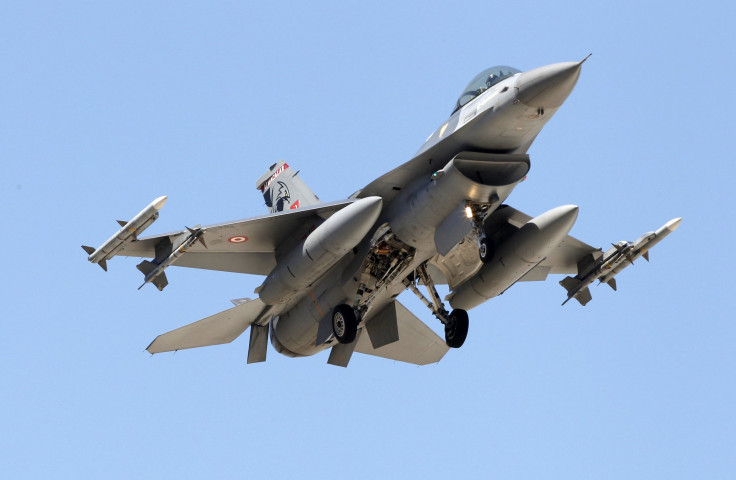Turkish Jets Strike ISIS Targets In Syria: State TV

Update as of 3:18 a.m. EDT: The Turkish Prime Minister’s office confirmed Friday that jets from the country’s military had struck Islamic State group targets in Syria.
According to a Reuters report, officials from Prime Minister Recep Tayyip Erdogan’s office said that Turkey would take any necessary measures to protect public order and national security following attacks by Islamic State and Kurdish militants.
Original story:
Turkish military jets struck Islamic State group positions in Syria in the early hours of Friday, according to reports on the country's state television network, cited by the Associated Press.
TRT television reported that four military jets took off from Diyarbakir air base in southeast Turkey and used missiles to hit ISIS targets in the Syrian village of Havar. It reportedly added that the Turkish planes did not violate Syrian airspace. The Turkish government has yet to officially confirm that the strikes took place.
This latest development comes just a day after cross-border clashes between Turkish ground forces and ISIS fighters left one combatant on each side dead. The clash was the first time that Turkey, a member of the U.S.-led coalition tackling ISIS, engaged in ground clashes with the militants.
In a further apparent escalation of its conflict with ISIS, Turkey granted permission Thursday for U.S. warplanes to make use of two of its airbases for launching raids against the group in Syria.
The developments seemingly represent the end of a longstanding reluctance on the part of Turkey to aggressively engage ISIS. The country's new approach was prompted by a suicide bombing in the Turkish town of Suruc on Monday that left 32 people dead.
Kurdish activists in Turkey have long accused the government of tacitly supporting ISIS, or turning a blind eye to its activities in Turkey, as ISIS has been waging war against Kurdish groups, and Turkey has an uneasy relationship with its sizable Kurdish minority.
Turkey has been a vital conduit for ISIS, with the Turkish border being the main route by which foreign fighters could cross into Syria and join the militant group. On Wednesday, however, Turkish President Recep Tayyip Erdogan and U.S. President Barack Obama agreed to "stem the flow of foreign fighters and secure Turkey's border with Syria," the White House said in a statement.
© Copyright IBTimes 2025. All rights reserved.






















